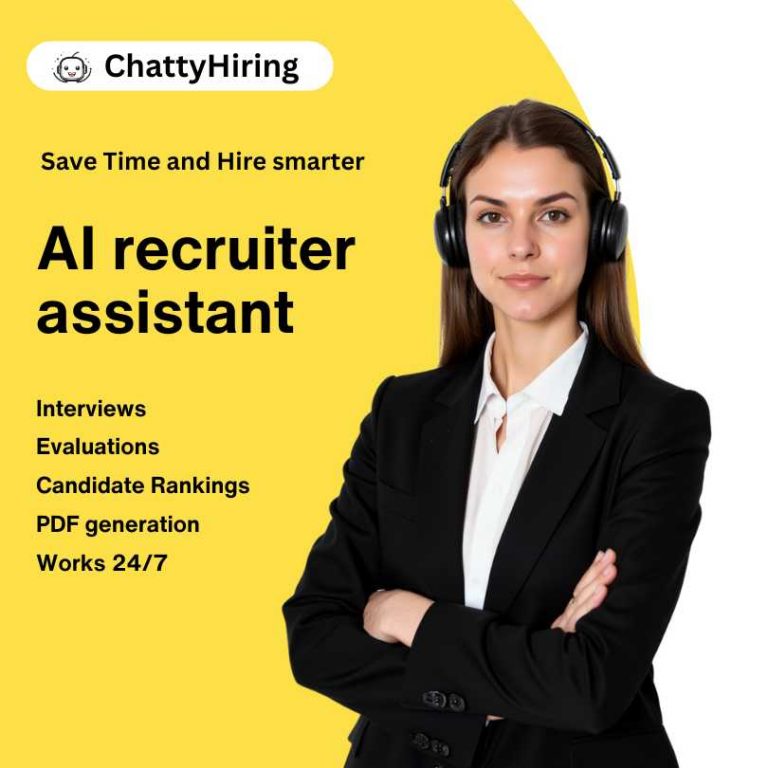The hiring industry is set to change significantly over the next five years. Employers will rely more on skills rather than traditional qualifications, focusing on what candidates can actually do. Technology, especially artificial intelligence and data analytics, will play a major role in shaping how companies identify and recruit talent.

Recruitment will become more flexible and dynamic as companies adjust to shifting workforce needs and evolving job roles. The rise of automation will streamline repetitive tasks, allowing recruiters to focus on strategic decisions and building better candidate experiences. This shift will help organisations find the right talent faster and more efficiently.
Both job seekers and employers will need to adapt to these changes by embracing continuous learning and staying updated with new digital tools. The hiring process will become more personalised and data-driven, reflecting broader labour market transformations.
Key Takeaways
- Hiring will focus increasingly on skills rather than formal degrees.
- Technology will enhance recruitment efficiency and decision-making.
- Flexibility and ongoing learning will be essential for future job markets.
Immediate Shifts in Hiring and Recruitment

Hiring and recruitment are changing due to new skills demands, evolving business needs, and labour market changes. These shifts affect how companies search for talent, the models they use, and the availability and behaviour of workers.
Evolving Hiring Priorities
Employers focus more on skills than formal qualifications. Skills-based hiring helps companies adapt to rapid technological changes and fill gaps that traditional degrees don’t cover. Upskilling existing employees is becoming a priority to keep pace with new tools and processes.
Recruiters place greater value on adaptability and continuous learning. Soft skills like communication and problem-solving receive more attention. Employers also prioritise diversity and inclusion, seeking to build balanced and innovative teams.
Using data and people analytics helps organisations evaluate candidates more fairly and efficiently. This reduces reliance on CVs alone, as many applications may be embellished or written by others.
Changing Recruitment Models
Traditional recruitment models are shifting towards hybrid and digital approaches. Virtual interviews, AI-powered screening, and automated candidate matching become the norm. This speeds up hiring but also requires new skills in HR teams.
Recruiters are more involved throughout the hiring process, taking on strategic roles to align talent acquisition with business objectives. Companies often use talent pools and pipelines to prepare for future hiring needs rather than waiting to fill immediate vacancies.
Flexible contracts and gig work are increasingly part of recruitment strategies. This blends permanent, temporary, and freelance roles to meet fluctuating workload demands and control costs.
Labour Market Dynamics
Labour markets in 2025 are complex due to economic uncertainty, inflation, and global shifts. Talent shortages persist, making competition for skilled workers tough, especially in tech and specialised fields.
Workers expect better financial wellness support and working conditions. Employers respond with benefits like flexible hours, remote work, and mental health resources to attract and retain staff.
Globalisation means recruitment spans multiple markets, requiring awareness of diverse regulations and cultural expectations. This adds complexity but also widens talent access.
| Factor | Impact on Hiring |
|---|---|
| Inflation | Raises cost of recruitment |
| Talent Shortages | Drives focus on retention strategies |
| Remote Work | Expands talent pools worldwide |
| Economic Uncertainty | Increases workforce planning needs |
The Rise of Skills-Based Hiring

Skills-based hiring is changing the way employers find talent by focusing on what candidates can do rather than where they were educated. This shift is reducing reliance on formal qualifications, improving how candidates are assessed, and helping create more diverse workforces.
Reducing Qualifications Barriers
Many companies and governments are dropping strict degree requirements for roles that don’t need them. This opens doors to candidates with the right abilities but no formal qualifications. For example, states like Pennsylvania and Utah have removed degree requirements for many public sector jobs.
This change recognises skills gained through experience, training programmes, or certifications. Industries such as technology and healthcare prioritise practical skills over degrees, allowing candidates from various backgrounds to compete. Removing these barriers helps address labour shortages and gives more people access to better jobs.
Assessment and Vetting Tools
To hire based on skills, employers are using new methods to test candidates. These include online skills tests, simulations, and practical assignments tailored to specific roles. Technologies like AI also help match candidates to jobs by analysing their abilities rather than relying on resumes alone.
This approach provides a clearer view of a candidate’s potential and reduces bias. Employers can evaluate soft skills, technical knowledge, and problem-solving in real-world contexts. These tools improve hiring accuracy and help employers find the best fit for their needs.
Diversity and Inclusion through Skills-Focused Approaches
Skills-based hiring promotes diversity by widening the talent pool beyond traditional education paths. This method values varied experiences and creates fairer opportunities for underrepresented groups.
By focusing on competencies like communication and teamwork, employers can build more inclusive workplaces. Companies also report better retention and workplace culture when skills, not credentials, guide hiring decisions. This approach challenges stereotypes and makes recruitment more equitable.
Technology and Data Shaping the Future Workforce
In the next five years, technology will drastically change how companies find and hire talent. Data will drive decisions, helping employers improve recruitment speed, fairness, and quality. Digital tools will also adapt to new work styles, supporting remote and hybrid hiring methods.
AI and Automation in Recruitment
AI will play a central role in recruitment, automating many manual tasks. It will scan resumes faster and more accurately than humans, using algorithms to identify the best candidates. AI can also conduct video interviews, analysing speech and body language to assess fit and skills.
Automation will streamline scheduling interviews and manage candidate communication without needing human input. AI tools will generate customised job descriptions and match candidates to roles based on more than just keywords. Bias reduction will be a key focus, with AI systems designed to remove human prejudice from the hiring process.
Analytics and Hiring Metrics
Data analytics will become essential for measuring recruitment success. Employers will use metrics like time-to-fill, candidate quality, and diversity ratios to optimise hiring. Predictive analytics will help forecast workforce needs and identify skills gaps before vacancies arise.
Companies will track candidate progress through every step using dashboards that highlight funnel bottlenecks or drop-off points. This data-driven approach allows organisations to adjust strategies quickly, improving hiring outcomes. Analytics will also assess long-term employee performance, linking recruitment choices to business results.
Remote and Hybrid Recruitment Strategies
Remote and hybrid work will reshape recruitment strategies by expanding talent pools globally. Employers will rely on technology to conduct fully virtual hiring processes, including AI-powered interviews and onboarding.
Platforms will support hiring across time zones and languages, ensuring consistent candidate experiences. Virtual reality and digital simulating tools may help candidates explore job roles or company culture before accepting offers. As hybrid work becomes common, recruitment will focus on flexibility and adaptability to attract diverse candidates.
Strategic Transformation of Recruitment Teams
Recruitment teams are shifting from purely filling roles to becoming integral parts of business strategy. They are expected to provide insights on talent needs and market trends. This change demands new skills and a deeper understanding of organisational goals.
Recruiters as Strategic Partners
Recruiters will no longer act just as facilitators but as trusted advisors. They will analyse hiring data to predict talent shortages and suggest workforce planning strategies.
Their role will include influencing business leaders with real-time market intelligence. This involvement ensures recruitment aligns with company objectives and drives better performance.
Recruiters will also take on responsibilities traditionally held by HR Business Partners. This means managing candidate experience, employer branding, and talent pipelines strategically.
Upskilling for New Demands
Recruiters must develop skills beyond sourcing and screening. Mastery of data analytics tools will be crucial to measure quality of hire and recruitment effectiveness.
They will also need strong communication skills to build authentic connections with candidates and internal teams. This involves understanding diverse talent communities and promoting inclusive hiring.
Familiarity with new recruiting technologies, such as integrated applicant tracking systems and AI-driven tools, will improve efficiency. Continuous learning and adaptability will enable recruiters to meet evolving business challenges and stand out as key contributors.
-

A passionate advocate for the future of HR innovation. With expertise in leveraging AI to revolutionize recruitment processes, Carlos has a clear vision: empower HR teams while creating meaningful candidate experiences.
View all posts





